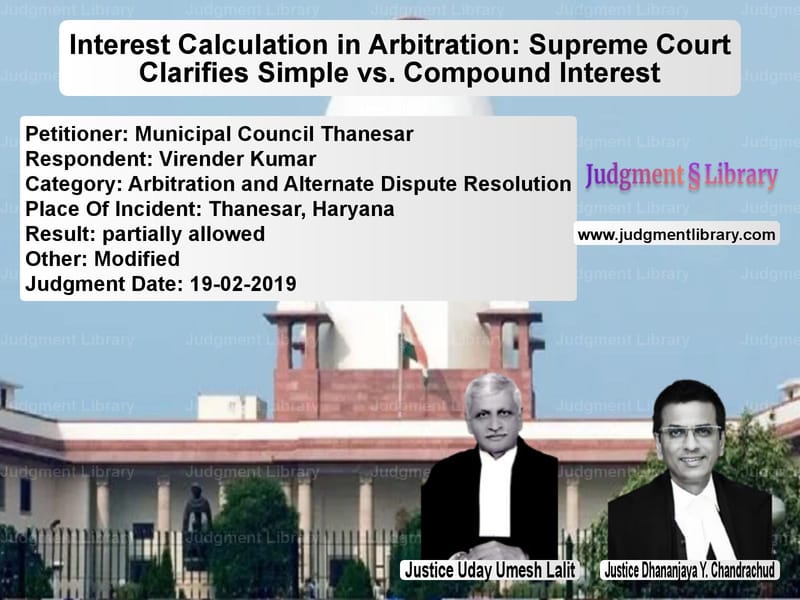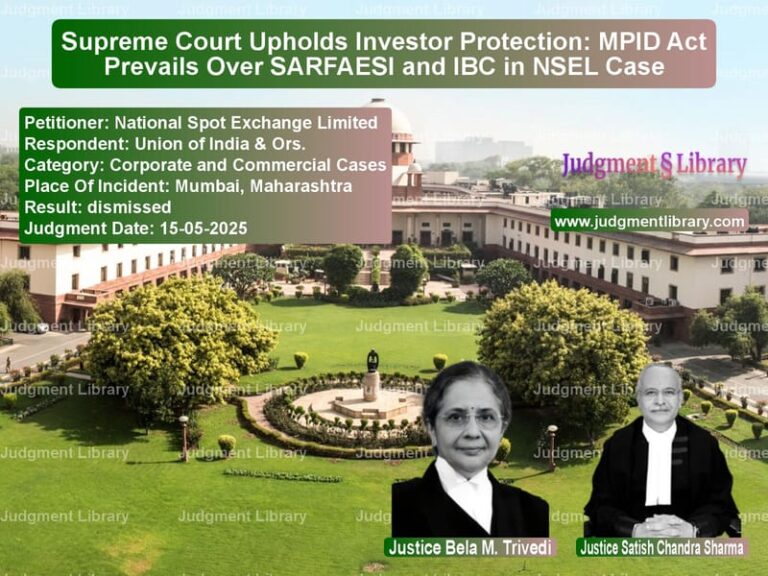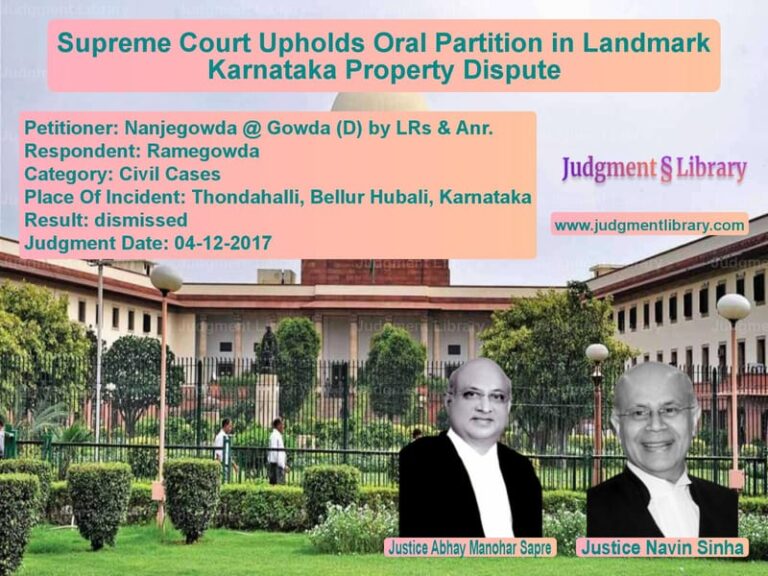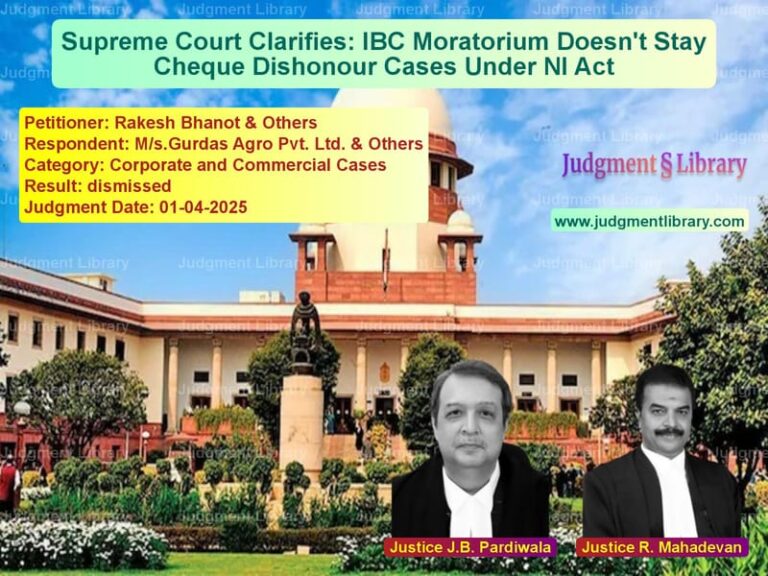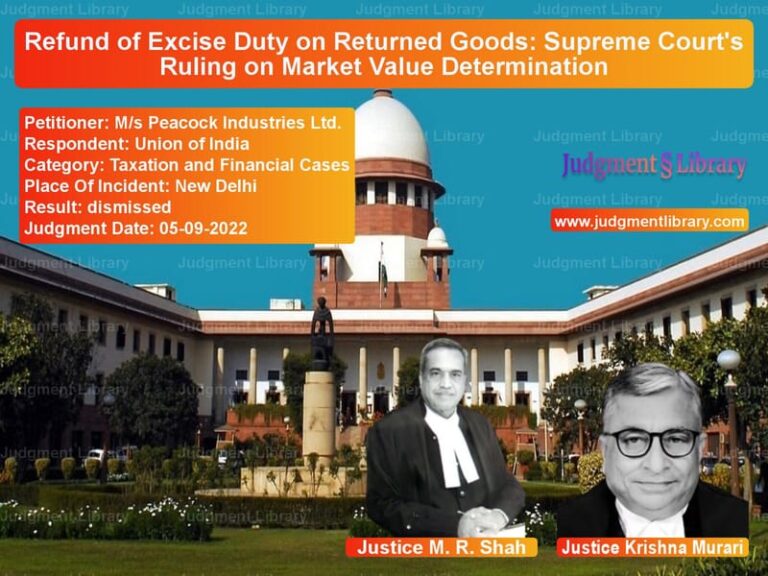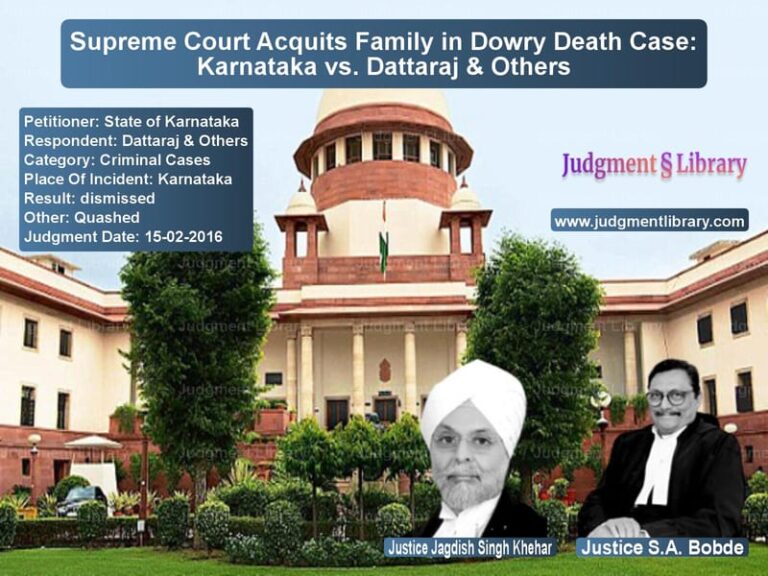Interest Calculation in Arbitration: Supreme Court Clarifies Simple vs. Compound Interest
The Supreme Court of India recently delivered a landmark judgment in the case of Municipal Council Thanesar vs. Virender Kumar. This case revolved around the dispute concerning interest calculation in arbitration awards and whether it should be calculated as simple interest or compound interest with quarterly rests. The ruling provides much-needed clarity on how interest should be interpreted and applied in arbitration matters.
Background of the Case
The case originated from an auction conducted by the Municipal Council Thanesar on 18.10.2016, where the respondents (Virender Kumar and others) participated and were declared successful bidders for various shops and showrooms. However, disputes arose regarding the readiness of the premises, the incomplete state of construction, and the lack of civic amenities.
These grievances led to multiple legal proceedings. The matter was eventually referred to a sole arbitrator by the Punjab and Haryana High Court in a series of writ petitions. On 14.10.2010, the arbitrator issued a common award in favor of the respondents, directing the Municipal Council to:
- Complete the construction of the shopping complex within one month.
- Issue notices to the respondents to take possession of the premises.
- Execute agreements for the shops.
- Pay interest at 7% per annum on the advance rent and non-refundable security until possession was handed over.
- Additionally, award damages at 12% interest per annum due to mental distress and business losses suffered by the allottees.
The Municipal Council objected to this award under Section 34 of the Arbitration and Conciliation Act, 1996, but their objections were dismissed by the Additional District Judge on 15.09.2012. Appeals to the High Court and the Supreme Court further upheld the arbitration award, making it final.
Execution Proceedings and High Court Ruling
Following the dismissal of appeals, the respondents initiated execution proceedings to enforce the arbitration award. The Executing Court, in its order dated 23.03.2015, examined whether the awarded interest should be interpreted as simple interest or compound interest with quarterly rests.
The Executing Court ruled that:
- The interest rate of 7% per annum mentioned in the arbitration award should be calculated on a simple interest basis.
- The phrase “interest at the rate offered by nationalized banks” must be read in conjunction with the award’s main direction.
- There was no specific mention of quarterly rests or compounding in the award.
- As per banking guidelines, interest calculation methods vary across banks; therefore, it should not be assumed that compound interest was intended.
However, the respondents challenged this interpretation before the Punjab and Haryana High Court, arguing that they were entitled to quarterly compounding of interest.
The High Court formulated two key questions:
- Are the decree-holders entitled to statutory benefits under Section 31(7)(a) and (b) of the Arbitration Act?
- Should the interest on advance rent and non-refundable security be calculated at 7% per annum with quarterly rests?
The High Court ruled in favor of the respondents, holding that they were entitled to post-award interest under Section 31(7)(b) and that the interest should be calculated with quarterly rests. The Municipal Council Thanesar challenged this ruling before the Supreme Court.
Supreme Court’s Analysis and Judgment
The Supreme Court examined the arbitration award and determined that the arbitrator had simply awarded 7% per annum interest without specifying whether it should be simple or compounded.
It observed:
“The award did not even remotely suggest that interest should be capitalized on a quarterly or yearly basis. It was a pure and simple award of interest at 7% per annum.”
The Court further noted that:
- The Executing Court and the High Court had wrongly introduced a provision for compound interest that was absent in the original award.
- Neither quarterly rests nor annual compounding was mentioned in the arbitrator’s ruling.
- Without an explicit mention of compounding, interest should be presumed to be simple interest.
Based on this analysis, the Supreme Court ruled that:
- The awarded interest must be calculated as simple interest at 7% per annum.
- The respondents are entitled to post-award interest under Section 31(7)(b) of the Arbitration Act, but this too must be calculated as simple interest.
- The Punjab and Haryana High Court’s ruling on quarterly compounding was erroneous and was therefore set aside.
Impact and Significance of the Judgment
This Supreme Court judgment sets an important precedent for arbitration cases involving interest calculations. It reinforces the principle that courts cannot alter or modify an arbitration award at the execution stage. The ruling also underscores the need for precise drafting in arbitration awards to avoid ambiguity.
Key takeaways from the judgment include:
- Clarity on Interest Calculation: Arbitration awards must explicitly state whether interest is to be simple or compound. Courts should not assume compounding unless it is explicitly mentioned.
- Scope of Execution Courts: Execution courts are bound by the terms of the original award and cannot introduce new interpretations.
- Importance of Drafting: Arbitrators must ensure that awards are clearly worded to avoid post-award disputes regarding interest calculations.
- Uniformity in Arbitration Law: This ruling aligns with previous judgments, ensuring that interest awards in arbitration remain consistent across cases.
Conclusion
The Supreme Court’s ruling in Municipal Council Thanesar vs. Virender Kumar serves as a significant reference point for arbitration disputes. By reaffirming that interest calculations must adhere strictly to the arbitration award’s wording, the judgment safeguards the integrity of arbitration proceedings and ensures that post-award disputes are minimized. This case highlights the necessity for precision in arbitration awards and the importance of judicial restraint in execution proceedings.
Petitioner Name: Municipal Council Thanesar.Respondent Name: Virender Kumar.Judgment By: Justice Uday Umesh Lalit, Justice Dhananjaya Y. Chandrachud.Place Of Incident: Thanesar, Haryana.Judgment Date: 19-02-2019.
Don’t miss out on the full details! Download the complete judgment in PDF format below and gain valuable insights instantly!
Download Judgment: Municipal Council Th vs Virender Kumar Supreme Court of India Judgment Dated 19-02-2019.pdf
Direct Downlaod Judgment: Direct downlaod this Judgment
See all petitions in Arbitration Awards
See all petitions in Dispute Resolution Mechanisms
See all petitions in Enforcement of Awards
See all petitions in Judgment by Uday Umesh Lalit
See all petitions in Judgment by Dhananjaya Y Chandrachud
See all petitions in partially allowed
See all petitions in Modified
See all petitions in supreme court of India judgments February 2019
See all petitions in 2019 judgments
See all posts in Arbitration and Alternate Dispute Resolution Category
See all allowed petitions in Arbitration and Alternate Dispute Resolution Category
See all Dismissed petitions in Arbitration and Alternate Dispute Resolution Category
See all partially allowed petitions in Arbitration and Alternate Dispute Resolution Category

